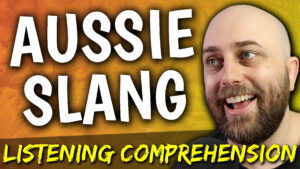
AE 1125 - INTERVIEW
Lab-Leak or Natural Source? Where did Covid-19 Come From? | with Dr Dan Wilson
Learn Australian English in each of these episodes of the Aussie English Podcast.
In these Aussie English Interview episodes, I get to chin-wag with different people in and out of Australia!

In today's episode...
Welcome to this episode of the Aussie English podcast!
We got another man of science in the podcast today!
This guy like me is another science lover – he got his bachelor’s degree in Biotechnology and Molecular Biology from Clarion University and his PhD in Molecular Biology from Carnegie Mellon University.
Meet Dr. Dan Wilson, creator of the YouTube channel Debunk the Funk with Dr. Wilson!
In his channel, he debunks the claims of anti vaxxers, the covid deniers, and various misinformation that’s circling the Internet.
In this last instalment of my 4-part interview with Dr Wilson, we talk about the origins of the COVID 19 virus.
Specifically, we talk about whether or not it came from a natural source versus a lab leak, where it was introduced from a lab into the population.
Instead of, say, coming directly through animals, we talk about what evidence we need to see to be 100% certain that it was one or the other, a natural origin or a lab leak.
We also talk about why it’s been so fuzzy and difficult to come to a definite conclusion on this.
We also chat about why China immediately started to cover up everything related to the virus and clamp down on any investigation into its origins and much more.
See you in the next episode!
** Want to wear the kookaburra shirt? **
Get yours here at https://aussieenglish.com.au/shirt
Improve your listening skills today – listen, play, & pause this episode – and start speaking like a native English speaker!

Watch & listen to the convo!
Listen to today's episode!
This is the FREE podcast player. You can fast-forward and rewind easily as well as slow down or speed up the audio to suit your level.
If you’d like to use the Premium Podcast Player as well as get the downloadable transcripts, audio files, and videos for episodes, you can get instant access by joining the Premium Podcast membership here.
Get more out of every episode!

Premium Podcast members get access to...
- All 900+ podcast episodes including member-only episodes
- Member-only episode video lessons
- Downloadable transcript PDFs & audio files for every episode

Recent Episodes:


AE 1361 – The Goss: TV Shows We’re Currently Binge Watching [Members Only]

AE 1360 – 20 English Idioms Explained | Members Only

AE 1359 – 20 English Idioms To Transcribe

AE 1358 – How to Pronounce -ED Endings in Australian English [Members Only]

AE 1357 – How to Pronounce -ED Endings in Australian English

AE 1356 – Will AI Save Us Or Replace Us?

AE 1355 – 20 Aussie Slang Sentences Explained [Members Only]

AE 1354 – 20 Aussie Slang Sentences to Transcribe

Share

Join my 5-Day FREE English Course!
Complete this 5-day course and learn how to study effectively with podcasts in order to level up your English quickly whilst having fun!


Want to improve a specific area of your English quickly and enjoyably?
Check out my series of Aussie English Courses.
English pronunciation, use of phrasal verbs, spoken English, and listening skills!

Have you got the Aussie English app?
Listen to all your favourite episodes of the Aussie English Podcast on the official AE app.
Download it for FREE below!



Want to improve a specific area of your English quickly and enjoyably?
Check out my series of Aussie English Courses.
English pronunciation, use of phrasal verbs, spoken English, and listening skills!
Leave a comment below & practice your English!






Responses